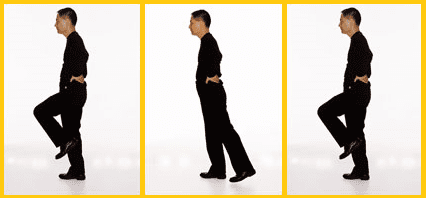Traditional Chinese medicine follows a deep understanding of how the energy system affects the health of the whole person: body, mind, emotions and spirit. The goal is to build true, lasting health from within.
The power of Qi
The quality of a man’s health is related to the amount and quality of his Qi.
As men get older, they often suffer from back, neck and knee problems, as well as insomnia, muscle tension, memory loss and sports injuries. Many middle-aged men also experience problems with prostate, urinary and sexual function. Energetically, these symptoms are all related to kidney function.
The Kidney stores all the Qi that you inherit at birth. After you are born, your body uses this inherited Qi for growth. All growth, including teeth, bones, sexual development, hormones and the ability to reproduce, are related to the quality and quantity of your Kidney Qi. When other organs are overloaded and need energetic support, the Kidney sends them backup energy. When the Kidney itself has little Qi, it cannot fully support the other organs. This means that they cannot function at their optimal level. That’s when aches, pains, and other symptoms start to appear.
The kidney and bladder are partner organs. Together, these organs provide support to the heart and play an important role in maintaining a sharp mind and good memory.
Modern health problems
Men with an enlarged prostate are often told to have more sex. However, Chinese medicine doctors will say the opposite. Why this different approach? Sex relieves the pressure that the enlarged prostate puts on the bladder area. But this relief only lasts for a short time. Chinese medicine looks at the root cause of the problem to create a long-term solution. Because prostate problems are caused by poor kidney function and sex uses up the kidneys’ energy, the problem will only worsen over time. To reverse these problems, you need to increase kidney energy.
Common health issues facing modern men can be addressed holistically with acupuncture, herbs and Qigong exercises, along with healthy lifestyle choices, nutrition and stress reduction.
Self-care tips:
1. Eat for Healing! Food is the main source of acquired Qi for the body. Add seafood (salmon, oysters, mussels, shrimp, lobster), black beans, nuts (walnuts, cashews, pine nuts), and black sesame seeds to your diet. Also try bee pollen, cauliflower, seaweed and bone broth or bone marrow. These foods contain a healing essence that supports your kidneys.
2. Stay warm! Too often, people push the body and wonder why they don’t feel their best. Keep the body warm, especially in the colder months. Cover your skin (especially your head and feet!) so that the body can use the Qi to rebalance instead of spending it to keep the body warm. The warming also extends to the food on your plate. Instead of reaching for an energy bar, sit down and enjoy a hot meal. Barley with red dates or oatmeal with baked apples are great ways to start every day. Visit our recipe section for lots of plant-based meal ideas.
3. Reduce stress and practice Qigong! Chronic stress constantly forces the Kidney to provide extra energetic support to the Liver, the organ most affected by stress. Even 10-20 minutes of Qigong a day can significantly help your body, mind and spirit recover from stress. Qigong movements help Qi flow smoothly through the body’s meridian system. But Qigong alone is not the answer. You must also live in a way that brings peace to your daily life.
Here’s a Qigong move that directly benefits the Kidney and Bladder Meridians.

- Rest your hands on your lower back with fingers pointed toward your spine. Lift your left knee.
- Pedal smoothly and slowly directly behind you, fully extending your leg. Your toes should be a few inches away from the floor when your leg is fully extended.
- To repeat. Practice slow kicks with the left leg for five minutes. Then switch to the right side.
- Tips: If you have trouble keeping your balance, use a chair for support.

